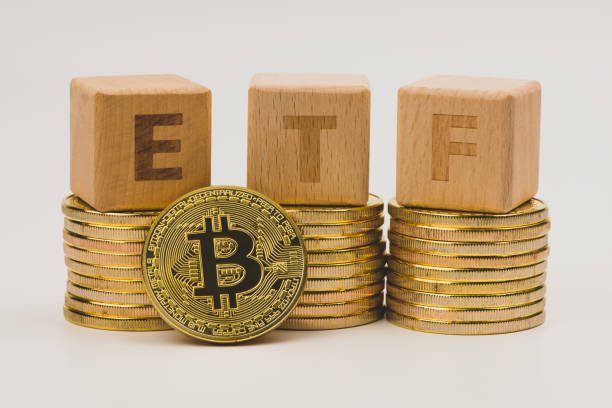Countries where Bitcoin is Banned
Countries where Bitcoin is Banned, Legal, or Restricted in 2023
The Legality of Bitcoin is a significant factor to consider when choosing to invest in Bitcoin. Regulators around the world are laying legal structures to regulate the use and trading of Bitcoin.
Countries across the world have varying legislative positions on Bitcoin. Very few countries have completely banned Bitcoin. However, that does not mean it is considered legal tender in many countries either. Few countries have gone as far as to legally accept Bitcoin as a form of instrument for payments.
In other countries, Bitcoin is banned and just having it can get you to prison. Other jurisdictions are still thinking about what steps to take regarding owning and usage of Bitcoin in their economy.
Countries Where Bitcoin is Illegal
While most countries have either welcomed Bitcoin or have remained silent about it, some countries have issued bans on Bitcoin and other cryptocurrencies. The countries may have various reasons including the decentralized nature of Bitcoin, the threat Bitcoin poses to the current financial system, or even the lack of proper regulations yet. At least ten countries have an outright ban on Bitcoin.
China
China is one of the biggest countries with an absolute ban on Bitcoin and other cryptocurrencies. It prohibits activities such as Bitcoin mining, Bitcoin trading and transactions, and employment in the Bitcoin sector. The country has cited several reasons for banning Bitcoin that revolve around fears that the crypto shadow economy could harm the country’s economic development. Some of the mentioned reasons are consumer protection, lack of legal backing for Bitcoin, capital flight (money leaving the local economy), Yuan devaluation, and environmental concerns.
Nepal
Nepal prohibited Bitcoin in 2021, declaring its mining, use, and trade illegal. Their main reason is to protect their citizens from crypto scams.
Afghanistan
Afghanistan issued a Bitcoin ban in September 2021. Their main reason for the ban relates to the decentralized nature of Bitcoin, which promotes a free market. The regime harshly penalizes users and traders
Bangladesh
Bangladesh banned Bitcoin back in 2017. The government claims that crypto activities will be in breach of the country’s anti-money laundering and anti-terrorism laws.
Morocco
Morocco also banned Bitcoin and other cryptocurrencies a few years ago. The country has cited the assumed criminality of cryptocurrency users. The country fears that the financial institution might fail to identify streams of revenue. Additionally, some scholars of Islamic law argue that Bitcoin might infringe the Muslim rule against usury.
Algeria
Algeria also prohibits cryptocurrency activities and products such as exchanges, trading, and even holding cryptocurrencies. They argue that crypto, including Bitcoin, is not backed by anything.
Egypt
Egypt is another North African country that forbids any form of cryptocurrency activity. The country’s central bank emphasizes that the value of cryptocurrency is not tied to any tangible asset.
Bolivia
Bolivia is another country that enacted a complete ban on cryptocurrency. The primary reason is to protect its inhabitants against crypto-related challenges.
Qatar
Bitcoin and other cryptocurrencies are completely banned in Qatar. The country states weak compliance with know-your-customer (KYC) and anti-money laundering (AML) regulations as the reason behind the ban.
Dominican Republic
The Dominican Republic prohibits the use of Bitcoin citing that they are not legal tender.
Countries where Bitcoin Use is Legally Restricted
Some countries have not entirely banned Bitcoin but restrict some of its activities. Many of these states prohibit banks and other financial institutions from dealing with cryptocurrency companies and products such as crypto exchanges. Some of these countries are:
Russia
Bitcoin use is legal but restricted in Russia. Cryptocurrency cannot be used as a payment method. However, the country has been considering accepting Bitcoin for cross-border payments. The move is a response to heavy sanctions by the United States and the Western World, following the war in Ukraine.
Iran
The country prohibits financial institutions from handling cryptocurrency products.
Saudi Arabia
Bans banks and other financial institutions from participating in Bitcoin.
Turkey
Turkey does not allow Bitcoin or any cryptocurrency as financial assets in banks. Additionally, digital currencies cannot be classified as payment tools.
Kazakhstan
The National Bank of Vietnam has heavy cryptocurrency restrictions. It prohibits exchanges and mining.
Vietnam
Vietnam prohibits Bitcoin in trade relations. However, average users can possess and trade Bitcoin.
Countries where Bitcoin is Legal
There are at least 111 states where Bitcoin and other cryptocurrencies are recognized by the law as legal. For example, Bitcoin has never been “illegal” to buy and hold in countries such as Canada and the United States, at least at the federal level. These countries are considered cryptocurrency-friendly jurisdictions. In Europe, EU member is not encouraged to launch their national cryptocurrencies. However, the union encourages the legalization of Bitcoin and compliance with the regulations such as KYC and AML.
That said, most of these countries are still looking to create an overall regulatory framework.
Countries where Bitcoin is neither Legal nor Illegal
Some countries are still quiet about Bitcoin regulations. Citizens of such countries can own Bitcoin since it is not considered illegal. However, there are no clear rules and legal protection concerning owning and use of cryptocurrency. Therefore, the use of Bitcoin depends on the arrangement by individual users. Some of these countries are Angola, India, Kenya, Tanzania, Argentina, and Costa Rica.
Countries where Crypto is Legal Tender
Two countries consider Bitcoin a legal tender. El Salvador and the Central African Republic have made Bitcoin fully a fully-fledged currency alongside their fiat currencies. This is a big step that the rest of the world has not been ready to take. Many countries would be watching the outcome of the experiment by these two countries. It could impact the decision of many countries regarding Bitcoin as a legal tender moving into the future.
Wrapping Up
Surprisingly, only a few countries ban Bitcoin outright, despite all the claimed issues with the cryptocurrency. However, that does not mean that using Bitcoin in other countries will not land you in trouble. Some countries do not consider Bitcoin illegal but regulate it strongly, including prohibiting its use for payments and trading.
Every Bitcoin user should research the legal stance of their country on Bitcoin possession and use.




